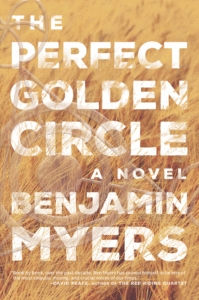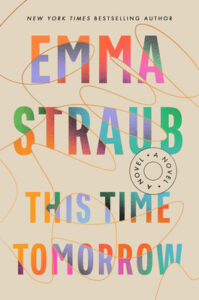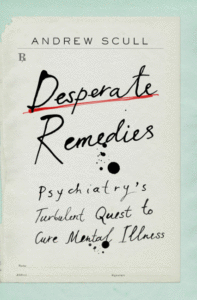What Should You Read Next? Here Are the Best Reviewed Books of the Week
Featuring new titles by Jhumpa Lahiri, Emma Straub, Benjamin Myers, Maggie Shipstead, and more
Emma Straub’s This Time Tomorrow, Robert Samuels & Toluse Olorunnipa’s His Name Is George Floyd, Jhumpa Lahiri’s Translating Myself and Others, and Benjamin Myers’ The Perfect Golden Circle all feature among the Best Reviewed Books of the Week.
Brought to you by Book Marks, Lit Hub’s “Rotten Tomatoes for books.”
*
1. The Perfect Golden Circle by Benjamin Myers
(Melville House)
7 Rave • 2 Mixed
“Myers’s duo of crop circlers consists of Redbone, a ‘crust-punk’ hippie who dreams up increasingly complex geometric patterns, and Calvert, a severely traumatized veteran of the Falklands War who does the legwork of finding usable fields…The odd couple is united by a complementary hatred of England and love of its land and roots…Begun as a lark, the crop circles provide them a lifeline…Their shared code is to ‘fuel the myth and strive for beauty’…The contrasting public and private aspects of the stunt are shown in parallel…In the background, through invented newspaper clippings, we read of the growing media sensation surrounding the crop circles, the mass pilgrimages by UFO-spotters, and the farmers who make a mint charging for access…But Mr. Myers focuses more on the creative act itself…The chapters chronicle each midnight mission in the fields, depicting both the challenge to remain undiscovered and the illicit thrill of completion…Anonymity and secrecy are key to the work but also a source of deep melancholy, and the novel uncovers a plaintive connection between artistic transcendence and personal loneliness…The controversies attached to crop circles ultimately fade out behind the touching individual quests for meaning…’The next one is always a beacon,’ the outcast artists think, ‘beaming hope across the strange and haunted landscapes of their solitary existences.’”
–Sam Sacks (The Wall Street Journal)
2. This Time Tomorrow by Emma Straub
(Riverhead)
6 Rave • 3 Positive
“With wonderful place details, This Time Tomorrow evokes the Upper West Side of the 1990s and offers some sly observations on class, especially the subtle gradations between New York’s merely privileged and its ultra-privileged. Alice’s high school scenes are sprinkled with ’90s music and pop culture references, which will be especially enjoyable for millennial readers. This Time Tomorrow’s many references to other time-travel stories occasionally stray into metafictional territory, but ultimately it’s a story with a lot of heart, some satisfying plot twists and a bittersweet, open-ended finale.”
–Sarah McCraw Crow (BookPage)
3. You Have a Friend in 10A by Maggie Shipstead
(Knopf)
5 Rave • 1 Positive • 2 Mixed
“Acclaimed author Shipstead turns her considerable talent to the short story, offering readers this sweeping collection … The resulting collection is an effortlessly transporting and piercing journey. Stories focus on those innate, immutable, and deeply rooted human characteristics within us all that we perhaps wish were a bit more malleable … While there’s no shortage of compelling characters and penetrating insights, the book’s title story is one of its strongest … Reaching across decades and set in a diverse array of locations both domestic and exotic, Shipstead’s latest will find a home on bookshelves next to the work of Andre Dubus III, Jane Smiley, and Richard Russo.”
–Stephanie Turza (Booklist)
**
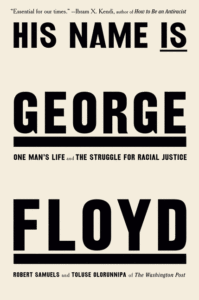
1. His Name Is George Floyd: One Man’s Life and the Struggle for Racial Justice by Robert Samuels and Toluse Olorunnipa
(Viking)
7 Rave • 1 Positive
“It is a testament to the power of His Name Is George Floyd that the book’s most vital moments come not after Floyd’s death, but in its intimate, unvarnished and scrupulous account of his life … a brilliantly revealing portrait of the structures of poverty, land theft and racism that shaped not only Floyd but also his kinship networks in the South … does an impressive job of contextualizing Floyd’s struggles with drug addiction, frequent arrests and afive-year prison sentence for aggravated robbery in a crime that he insisted he had nothing to do with. Throughout, we get the portrait of a flawed man trying to come to terms with diminished dreams, one whose muscular physical exterior hid a gentle soul who battled pain, anxiety, claustrophobia and depression … Samuels and Olorunnipa take pains to offer capsule histories of the structural roots of racism in the criminal justice and education systems—with their impact on wealth and homeownership—to better tell Floyd’s story holistically. This does not always make for a seamless narrative, but in many ways the book is stronger for it … By focusing on the disparate parts of the system of structural racism that impacted Floyd’s life, the authors allow readers to better comprehend and experience the final indignity that greeted him on May 25, when Chauvin, an officer with a history of brutalizing suspects, casually ended his life.”
–Peniel E. Joseph (The New York Times Book Review)
2. Desperate Remedies: Psychiatry’s Turbulent Quest to Cure Mental Illness by Andrew Scull
(Belknap Press)
6 Rave • 2 Positive
“… grim but fascinating … This is an angry history, as, say, histories of slavery or genocide will tend to be. Although Scull doesn’t spend much time on this aspect, psychiatrists and those caring for the severely mentally ill will often have done their duties as they saw them and according to the state of knowledge at the time, acting with compassion for their patients. But the ones who made the weather in American psychiatry seem to have shared a dangerous self-confidence in their theories and an obstinate zeal in acting on them … Scull ends this absolutely essential, deeply felt and horribly absorbing book more with a plea than with enlightenment. He begs that we should, despite everything (including Big Pharma’s withdrawal from psychiatric-based research), keep looking to help our suffering fellows, and consider while doing so whether social and environmental causes of mental illness are not as significant as physical ones. Somewhere in the amazingly plastic human brain lies the solution to our most intractable problem.”
–David Aaronovitch (The Times)
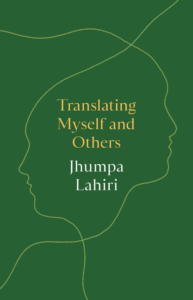
3. Translating Myself and Others by Jhumpa Lahiri
(Princeton University Press)
3 Rave • 6 Positive
“With the fervor of a true language person, Lahiri dives into the dictionaries. She savors unexpected etymologies. She offers lists of near-synonyms. She dedicates an entire essay to the optative mood in ancient Greek…Above all, she makes herself at home in the unhomey—unheimlich, eerie, uncanny—borderlands between languages … she does not dwell on what one might call the postcolonial or political aspects of her own biography. Neither is she encumbered by the pieties that often surround writing on translation…The book, instead, is about the consequences of the apparently simple act of choosing one’s own words … contains a hope for the liberating power of language.”
–Benjamin Moser (The New York Times Book Review)



